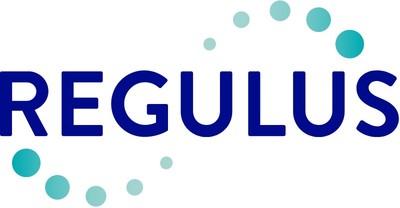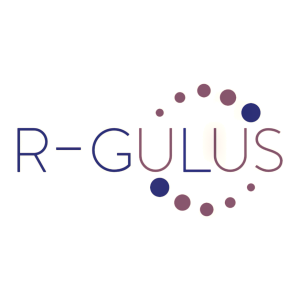Regulus Therapeutics Announces Completion of Enrollment in First Cohort of Phase 1b Multiple-Ascending Dose (MAD) Clinical Trial of RGLS8429 for the Treatment of Patients with Autosomal Dominant Polycystic Kidney Disease (ADPKD)
Regulus Therapeutics Inc. (Nasdaq: RGLS) has successfully completed enrollment in the first cohort of its Phase 1b multiple ascending dose (MAD) clinical trial for RGLS8429, aimed at treating Autosomal Dominant Polycystic Kidney Disease (ADPKD). This trial evaluates the drug's safety, tolerability, and pharmacokinetics in adults diagnosed with ADPKD. Topline data is anticipated by Q3 2023. The first cohort will receive RGLS8429 at a dose of 1 mg/kg every other week for three months. Following safety reviews, a second cohort will commence with a 2 mg/kg dosing regime. RGLS8429, designed to inhibit miR-17, has shown promising preclinical results, indicating improvements in kidney function and other disease metrics. ADPKD affects roughly 160,000 people in the U.S. and 4 to 7 million globally, making this research particularly significant.
- Completion of enrollment in Phase 1b MAD trial for RGLS8429 is a significant milestone.
- Topline data from the trial is expected by the end of Q3 2023.
- RGLS8429 has demonstrated favorable safety and pharmacokinetic profiles in previous studies.
- N/A
Insights
Analyzing...
"Completion of enrollment in the first cohort of the Phase 1b MAD study is an important milestone in the development of this novel treatment for ADPKD," said
The Phase 1b MAD study is a double-blind, placebo-controlled trial evaluating the safety, tolerability, pharmacokinetics and pharmacodynamics (PK/PD) of RGLS8429 in adult patients with ADPKD. The study will evaluate the safety and PK/PD of RGLS8429 treatment across three different dose levels, including measuring changes in polycystins, height-adjusted total kidney volume (htTKV), and overall kidney function. The first cohort is being dosed at 1 mg/kg of RGLS8429 or placebo every other week for three months. The Company expects to begin dosing the second cohort following a review of all available cohort 1 safety data, which is planned for
More information about the MAD clinical trial is available at clinicaltrials.gov (NCT05521191).
About ADPKD
Autosomal Dominant Polycystic Kidney Disease (ADPKD), caused by mutations in the PKD1 or PKD2 genes, is among the most common human monogenic disorders and a leading cause of end-stage renal disease. The disease is characterized by the development of multiple fluid filled cysts primarily in the kidneys, and to a lesser extent in the liver and other organs. Excessive kidney cyst cell proliferation, a central pathological feature, ultimately leads to end-stage renal disease in approximately
About RGLS8429
RGLS8429 is a novel, next generation oligonucleotide for the treatment of ADPKD designed to inhibit miR-17 and to preferentially target the kidney.
About Regulus
Regulus
Forward-Looking Statements
Statements contained in this presentation regarding matters that are not historical facts are "forward-looking statements" within the meaning of the Private Securities Litigation Reform Act of 1995, including statements associated with the Company's RGLS8429 program, including the expected timing for initiating clinical studies, the expected timing for reporting topline data, and the timing and future occurrence of other preclinical and clinical activities. Because such statements are subject to risks and uncertainties, actual results may differ materially from those expressed or implied by such forward-looking statements. Words such as "believes," "anticipates," "plans," "expects," "intends," "will," "goal," "potential" and similar expressions are intended to identify forward-looking statements. These forward-looking statements are based upon Regulus' current expectations and involve assumptions that may never materialize or may prove to be incorrect. Actual results and the timing of events could differ materially from those anticipated in such forward-looking statements as a result of various risks and uncertainties, which include, without limitation, risks associated with the process of discovering, developing and commercializing drugs that are safe and effective for use as human therapeutics and in the endeavor of building a business around such drugs, and the risk additional toxicology data may be negative. In addition, while Regulus expects the COVID-19 pandemic to adversely affect its business operations and financial results, the extent of the impact on Regulus' ability to achieve its preclinical and clinical development objectives and the value of and market for its common stock, will depend on future developments that are highly uncertain and cannot be predicted with confidence at this time, such as the ultimate duration of the pandemic, travel restrictions, quarantines, social distancing and business closure requirements in the
![]() View original content to download multimedia:https://www.prnewswire.com/news-releases/regulus-therapeutics-announces-completion-of-enrollment-in-first-cohort-of-phase-1b-multiple-ascending-dose-mad-clinical-trial-of-rgls8429-for-the-treatment-of-patients-with-autosomal-dominant-polycystic-kidney-disease-adpkd-301795902.html
View original content to download multimedia:https://www.prnewswire.com/news-releases/regulus-therapeutics-announces-completion-of-enrollment-in-first-cohort-of-phase-1b-multiple-ascending-dose-mad-clinical-trial-of-rgls8429-for-the-treatment-of-patients-with-autosomal-dominant-polycystic-kidney-disease-adpkd-301795902.html
SOURCE








